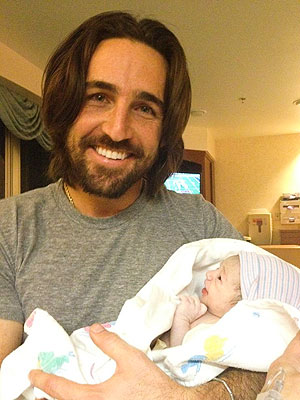NEW YORK (Reuters) - Volatility is the name of this game.
With the S&P 500 above 1,400 following five days of gains, traders will be hard pressed not to cash in on the advance at the first sign of trouble during negotiations over tax hikes and spending cuts that resume next week in Washington.
President Barack Obama and U.S. congressional leaders are expected to discuss ways to reduce the budget deficit and avoid the "fiscal cliff" of automatic tax increases and spending cuts in 2013 that could tip the economy into recession.
As politicians make their case, markets could react with wild swings.
The CBOE Volatility Index <.vix>, known as the VIX, Wall Street's favorite barometer of market anxiety that usually moves in an inverse relationship with the S&P 500, is in a long-term decline with its 200-day moving average at its lowest in five years. The VIX could spike if dealings in Washington begin to stall.
"If the fiscal cliff happens, a lot of major assets will be down on a short-term basis because of the fear factor and the chaos factor," said Yu-Dee Chang, chief trader and sole principal of ACE Investments in Virginia.
"So whatever you are in, you're going to lose some money unless you go long the VIX and short the market. The 'upside risk' there is some kind of grand bargain, and then the market goes crazy."
He set the chances of the economy going over the cliff at only about 5 percent.
Many in the market agree there will be some sort of agreement that will fuel a rally, but the road there will be full of political landmines as Democrats and Republicans dig in on positions defended during the recent election.
Liberals want tax increases on the wealthiest Americans while protecting progressive advances in healthcare, while conservatives make a case for deep cuts in programs for the poor and a widening of the tax base to raise revenues without lifting tax rates.
"Both parties will raise the stakes and the pressure on the opposing side, so the market is going to feel much more concerned," said Tim Leach, chief investment officer of U.S. Bank Wealth Management in San Francisco.
"The administration feels really confident at this point, or a little more than the Republican side of Congress may feel," he said. "But it's still a balanced-power Congress so neither side can feel that they can act with impunity."
THE MIDDLE EAST AND EUROPE
Tension in the Middle East and unresolved talks in Europe over aid for Greece could add to the uncertainty and volatility on Wall Street could surge, analysts say.
An Egypt-brokered ceasefire between Israel and Hamas came into force late on Wednesday after a week of conflict, but it was broken with the shooting of a Palestinian man by Israeli soldiers, according to Palestine's foreign minister.
Buoyed by accolades from around the world for mediating the truce, Egyptian President Mohamed Mursi assumed sweeping powers, angering his opponents and prompting violent clashes in central Cairo and other cities on Friday.
"Those kinds of potential large-scale conflicts can certainly overwhelm some of the fundamental data here at home," said U.S. Bank's Leach.
"We are trying to keep in mind the idea that there are a lot of factors that are probably going to contribute to higher volatility."
On a brighter note for markets, Greece's finance minister said the International Monetary Fund has relaxed its debt-cutting target for Greece and a gap of only $13 billion remains to be filled for a vital aid installment to be paid.
Still, a deal has not been struck, and Greece is increasingly frustrated at its lenders, still squabbling over a deal to unlock fresh aid even though Athens has pushed through unpopular austerity cuts.
HOUSING DATA COULD CONFIRM RECOVERY
Next week is heavy on economic data, especially on the housing front. Some of the numbers have been affected by Superstorm Sandy, which hit the U.S. East Coast more than three weeks ago, killing more than 100 people in the United States alone and leaving billions of dollars in damages.
The housing data, though, could continue to confirm a rebound in the sector that is seen as a necessary step to unlock spending and lower the stubbornly high unemployment rate.
Tuesday's S&P/Case-Shiller home price index for September is expected to show the eighth straight month of increases, extending the longest continuous string of gains since prices were boosted by a homebuyer tax credit in 2009 and 2010.
New home sales for October, due on Wednesday, and October pending home sales data, due on Thursday, are also expected to show a stronger housing market.
Other data highlights next week include durable goods orders for October and consumer confidence for November on Tuesday and the Chicago Purchasing Managers Index on Friday.
At Friday's close, the S&P 500 wrapped up its second-best week of the year with a 3.6 percent gain. Encouraging economic data next week could confirm that regardless of the ups and downs that the fiscal cliff could bring, the market's fundamentals are solid.
Jeff Morris, head of U.S. equities at Standard Life Investments in Boston, said that "it's kind of noise here" in terms of whether the market has spent "a few days up or down. It has made some solid gains over the course of the year as the housing recovery has come into view, and that's what's underpinning the market at these levels.
"I would caution against reading too much into the next few days."
(Wall St Week Ahead runs every Friday. Questions or comments on this column can be emailed to: rodrigo.campos(at)thomsonreuters.com)
(Reporting by Rodrigo Campos; Editing by Tim Dobbyn and Jan Paschal)










